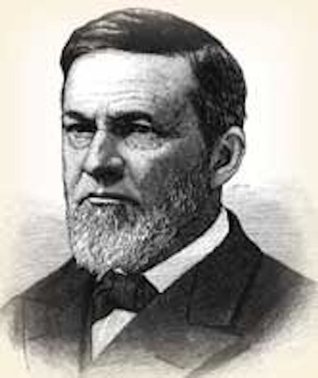- Bible
- Read the Bible
- Bible Versions
- Verse of the Day
- Reading Plans
- Verses by Topic
- Books of the Bible
- Bible Images
- Study
- Commentaries
- Concordances
- Dictionaries
- Encyclopedias
- Sermons
- Bible Atlas & Maps
- BP Wiki
- Devotionals
- Today's Devotionals
- Light of the World
- All Devotionals
- Inspirational Quotes
- More
- Picture Quotes
- Videos
- Inspirational
- Bible Study
- What The Bible Says
- Bible Q&As
- Daily Bread
- Bible by Genre
- Bible Stories
- Random Bible Verse
- Community
- Store
Sermons by John Broadus
by John A. Broadus
ohn Albert Broadus was born in Culpepper County, Virginia, 24 January, 1827. He was educated at the University of Virginia, and from 1851 till 1853 was assistant professor of ancient languages there. He then became pastor of the Baptist church in Charlottesville, and in 1859 professor of New Testament interpretation and homiletics in the Southern Baptist theological seminary at Greenville, South Carolina, now in Louisville, Kentucky As a Greek scholar and New Testament critic Dr. Broadus stands at the head of the Baptists of the south; but his only publication in this department is an elaborate review (in the "Religious Herald," 1866 and 1868)of the American Bible union's revised version of the New Testament. In 1870 he published "The Preparation and Delivery of Sermons," which has been adopted as a textbook in several theological seminaries. His other publications consist of sermons and review articles, and a series of papers, "Recollections of Travel," in the "Religious Herald," 1872-'3, describing a tour in Europe and the east; "Lectures on the History of Preaching" (1877); "Three Questions as to the Bible" (1884); "Commentary on Matthew" (1886); and "Sermons and Addresses" (1886).
BUY NOW
Kindle Edition, 169 pages
Published May 16th 2011
© 2026 Bibleportal.com All rights reserved.

John Albert Broadus was an American Baptist pastor and professor at the Southern Baptist Theological Seminary, one of the most famous preachers of his day. Charles Spurgeon deemed Broadus the “greatest of living preachers.” Church historian Albert Henry Newman later said “perhaps the greatest man the Baptists have produced.
Broadus was born in Culpepper County, Virginia, 24 January, 1827. He was educated at the University of Virginia, and from 1851 till 1853 was assistant professor of ancient languages there. He then became pastor of the Baptist church in Charlottesville, and in 1859 professor of New Testament interpretation and homiletics in the Southern Baptist theological seminary at Greenville, South Carolina, now in Louisville, Kentucky As a Greek scholar and New Testament critic.
His quiet conversational delivery brought both critics and imitators. Some men, who equated "real preaching" with soaring in the oratorical stratosphere, accused Broadus of "ruining the preachers of the South" by his example. His students, however, saw his effectiveness and in spite of his warning, many of them tried to imitate his tones, his genuine pathos, his platform manner, failing to realize that they had only a few of his external characteristics and not the qualities of his success.
... Show more